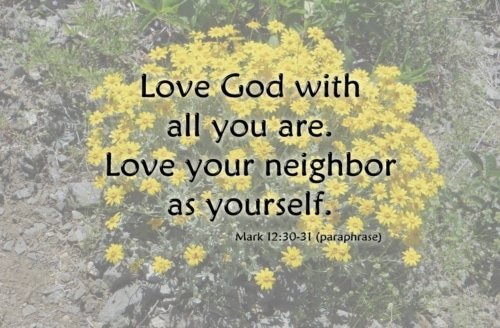

This is part eleven of my ongoing series about the Story of the Bible (SotB). The preceding posts have examined creation, fall, and redemption stories. This post will look back at the promise made to Abraham, the covenant made with Israel, and their fulfillment in Jesus.
A Quick Review
God made an unconditional promise to Abraham that he would be a blessing to the world, that his descendants would be uncountable, and that they would inherit the land that he had walked (Gen. 12:2-3, 13:14-17, 15:5, 22:17-18). God later established a covenant with Abraham’s descendants. A covenant that, if they kept up their end of it, would result in them being God’s special people and a nation of priests (Ex. 19:5-6).
God also promised David that he would always have a descendant sitting on the throne of Israel (2 Sam. 7:16). At least so long as they were faithful to him (1 Ki. 8:25).
Then Jesus came, announced as the heir of David who would establish an eternal kingdom (Lk. 1:30-33) and who claimed to be fulfilling the law and prophets (Mt. 5:17). Jesus came proclaiming the kingdom of God. This kingdom went beyond the physical descendants of Abraham (Rom. 9:6-8) to include all who have the faith of Abraham (Rom. 4:16-17, Gal. 3:7-9).
Mystery
The Greek word “mystērion” is used 27 times in the New Testament. The synoptic gospels use it once each, referring to the same saying of Jesus (Mt. 13:11, Mk. 4:11, Lk. 8:10). It is found four times in Revelation. The other twenty uses of this word are found in Paul’s letters.
Vine’s Expository Dictionary states, “In its ordinary sense, a ‘mystery’ implies knowledge withheld; its Scriptural significance is truth revealed.” In Matthew 13:11, Jesus told his disciples that they had been given the secrets (mystērion) of the kingdom. Paul uses the term to refer to truths hidden in the Old Testament prophets and revealed to the apostles (Eph. 3:1-5).
A Mystery Unveiled
So what is this mystery that was hidden in the Old Testament and unveiled in the New? While there are several aspects to this mystery, Ephesians 3:6 gives the one most relevant to this discussion: “This mystery is that the Gentiles are fellow heirs, members of the same body, and partakers of the promise in Christ Jesus through the gospel.”
The Gentiles are fellow heirs. What is it that we are heirs of? Galatians 3:26-29 tells us that in Christ, there is neither Jew nor Greek. And if we are in Christ, we are Abraham’s offspring and heirs according to the promise.
We are heirs of the promise or, as Ephesians 3:6 says, partakers of the promise. What is this promise? In Romans 4:13, Paul states, “It was not through the law that Abraham and his offspring received the promise that he would be heir of the world, but through the righteousness that comes by faith.” The promise was to Abraham that he would be the heir of the world. And that is the promise we are heirs of.
Paul goes on in Romans 4:16 to say: “Therefore, the promise comes by faith, so that it may be by grace and may be guaranteed to all Abraham’s offspring—not only to those who are of the law but also to those who have the faith of Abraham. He is the father of us all.” This promise made to Abraham was guaranteed to all of his offspring, to all who have the faith of Abraham.
This mystery kept hidden in the Old Testament but unveiled in the New is that all who have the faith of Abraham, whether Jew or Gentile, inherit the promise made to Abraham (Gal. 3:7-9).
Coming Up
So if the promise made to Abraham applies equally to all those who have faith, Jews and Gentiles alike, then what about the nation of Israel, the physical descendants of Abraham? What is their status before God today? The next post in this series will examine that question.
- The Story of the Bible (2/8/2025) – This is an introductory post to a series on the story of the Bible. At least as I understand it. Each post will build on the previous posts.
- A Good Creation (2/15/2025) – God created a good, although not necessarily perfect, world. His creation included all that has been made, both physical and spiritual.
- Humanity (2/22/2025) – Humanity is described as the final work in God’s creation, created to be in God’s image, and given rule over the rest of the creation.
- The Fall and Death (3/1/2025) – How did God’s creation end up in the mess it’s in. Genesis tells us humanity rebelled against God, fell from our high place, and faced death.
- An Unconditional Promise (3/8/2025) – Abraham was promised land, descendants as numerous as the dust of the earth, and offspring who would be a blessing to all people.
- A Conditional Covenant (3/15/2025) – At Mt. Sinai, God entered into a conditional covenant relationship with Israel. They would be his people if they obeyed the covenant terms.
- Breaking the Covenant (3/22/2025) – Israel repeatedly broke their covenant with God and eventually faced exile. Was that the end? Or was there still hope for them?
- Holding Out Hope (3/29/2025) – The prophets held out hope, telling Israel God had plans for them despite their rebellion. The promise of land, king, and temple remained.
- A Bump in the Road (4/5/2025) – Expectations when Jesus rode into Jerusalem. But by the end of the week, he had been executed as a common criminal. What went wrong?
- Turning the World Upside-down (4/12/2025) – The story of Jesus’ death and resurrection turned the world upside-down. He had made a way for all humanity to be reconciled to God.
- Unveiling the Mystery – Fulfilling the Promise (4/19/2025) – This mystery now unveiled in the New Testament is that all who have the faith of Abraham, Jew or Gentile, inherit the promise made to Abraham
The post Unveiling the Mystery – Fulfilling the Promise appeared first on A Clay Jar.


